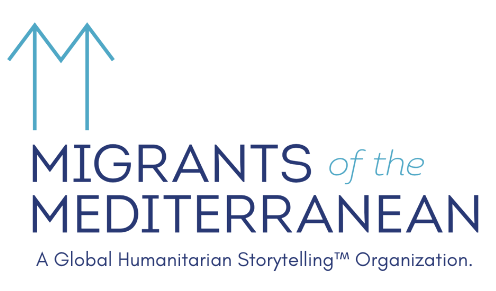Meet Abdul
Abdul outside the COA housing camp in Baexem, Netherlands. 16 June 2021. ©Pamela Kerpius/Migrants of the Mediterranean
by
Pamela Kerpius
Recorded:
16 June 2021
Published:
31 July 2021
Meet Abdul.
15 years old and from The Gambia.
To reach Europe he crossed six countries: Gambia, Senegal, Mali, Burkina Faso, Niger, and the most dangerous of all, Libya.
His journey took two years. He left on a bus, the Flixbus, to Serekunda, through Senegal, and finally to the Senegal-Mali border. There were numerous checkpoints, one every few kilometers, he said, where the passenger were required to pay bribes to the control.
He spent two days in a compound, a connection house, where he and the others remained with the driver. Already at this point he was out of money, because he had given all he had to the driver to manage his payments at the checkpoints.
There were more across Burkina Faso. It took a whole day at one of them in negotiation before they were able to leave. If you have no money to pay, you can be thrown in jail, Abdul said, and he was threatened with this in Burkina before the bus driver finally vouched for him.
He took the bus to Naimey, Niger, and remained in the city for one month. He slept outside the bus station. He got sick from the food; one man helped him find medication.
Abdul moved next to Agadez, Niger, where he said it was not safe. He remained for one month in the city, working as extra help to traffickers and drivers who needed a hand loading people on trucks for the desert crossing.
“It was the only way to make money,” Abdul said.
Abdul crossed the Sahara desert in the back of a pickup truck with more than 20 people, including women and children.
“You will not see,” he said about the desert, “You look until the desert does not end.” There were no trees, nothing in sight. The winds were strong and dangerous.
The driver left behind the two passengers who fell from the edge of the truck. “If you fall, you are on your own,” said Abdul. There was not enough food. He shared his water so the others around him could survive. The only other source available in the desert is from the occasional well serving up salty water.
“If you fall, you are on your own...”
He arrived three weeks later in Tripoli, Libya, an uncommonly direct route to the capital city that was possible through checkpoint payments done inclusive with the travel. But it turned out, Abdul was only paid through to Sabha, Libya.
The traffickers were rounding him up to be sent back to Sabha. He waited for the driver to vouch for his payment once again, but he didn’t come through this time. The traffickers wanted to sell him. People around him were being traded and sold as slaves. He was sold to a new group and taken to Sabha.
Abdul remained in a small city outside of Sabha for three or 4 months, until Ramadan that year. There were over fifty people staying in the open space of a compound. No food was available. He left on his own in an unfamiliar city to seek out whatever food and water he needed that day.
He worked in the compound to earn money for his return to Tripoli. He was held for ransom inside. They gave him a date that he would be shot and killed if he didn’t produce the money they asked for. He was shot in the leg. He bled out with no medical assistance around. An Arabic man helped negotiate his release after that. The means and duration of his recovery period are unknown.
He arrived in Tripoli and stayed for six months in a prison that kept more than 200 people. It wasn’t safe. People were regularly attacked.
“Do you know how many people my eyes see who are dead?” asked Abdul.
Authorities from Misrata, Libya came to the Gregara* prison saying there were too many migrants inside, and it was time to remove and deport them. Abdul was actually taken and locked up longer while being held again for ransom.
When he was able to leave he was transferred to the coastal camp Sabrasalim*, staying over two weeks. He slept in the open air, on the ground. Rats bit at his ankles at night looking for scraps of rice.
Abdul crossed the Mediterranean Sea between 12:00 midnight and 1:00a.m. in a rubber dinghy with more than 60 people, including women, some of whom were pregnant; and an unknown number of children and babies.
He was out at sea for two whole days. The water was calm. The middle of the boat started to tear from the pressure anyway. More than twenty people fell in the water. Not all of them were rescued. It was a red boat that picked them up, a German rescue ship, he said.
Abdul was transferred to the Guardia Costiera and landed in Lampedusa at 6:00p.m. on a Saturday in June, 2017. He is 23 years of age now and living in Baexem, Netherlands, where we recorded this story on 16 June 2021.
Abdul is an amazing human being.
* Name not verified.

